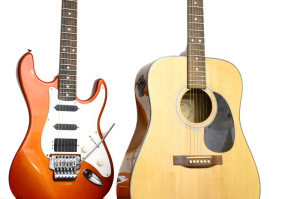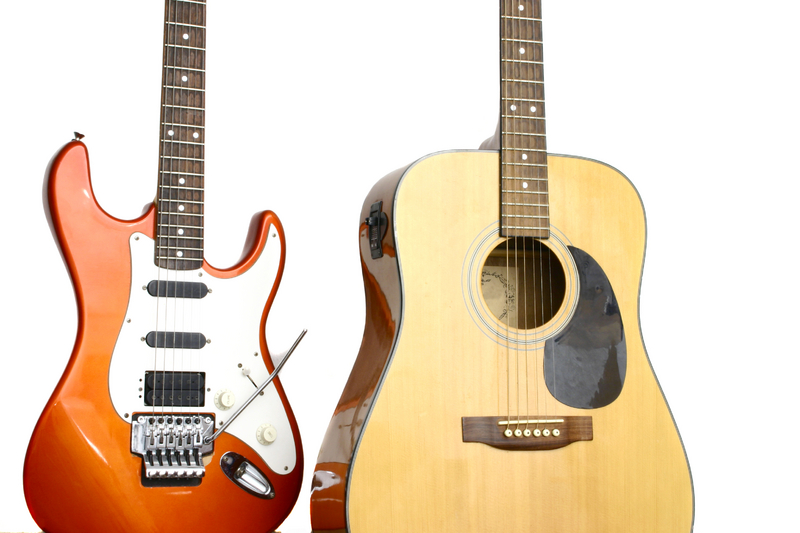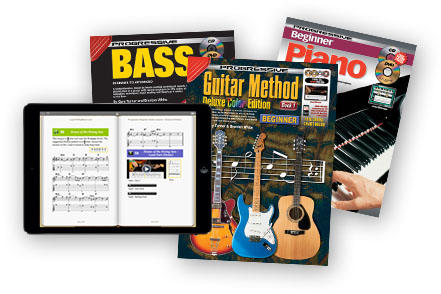 A New Take on the Old Question of Which Guitar for beginners to Buy…
A New Take on the Old Question of Which Guitar for beginners to Buy…
“Which Guitar is best for Beginners: Acoustic or Electric Guitar?” Parents of new students always ask us This question. We usually answer that question with another question: “ What did your child say they wanted?” This often startles parents, and is usually followed with something like: “…but I thought one should always start with an acoustic guitar. “ Well folks, here is our take on this subject:
The kind of guitar is really not that important.
What is important is that the student has a passion for music and the guitar in general. With all the video games, iPods, Kindles, etc., that today’s teenagers are surrounded with on a daily basis, I find it amazing if a child shows any interest in music or learning an instrument at all. So if all it takes to foster that interest in a child is an electric guitar, then I say: “Absolutely, yes!”
But isn’t an acoustic guitar easier to learn on?
Quick answer: it doesn’t have to be. Yes, the lower string tension of nylon strings tends to be more comfortable on beginners’ hands than steel strings, but an electric guitar can be strung with lighter string gauges, and the lower string action of electric guitars, combined with their smaller neck width, makes fingering chords and notes much easier for beginners. Also, I am finding that the smaller body size of electric guitars is especially suited to smaller children, because they have an easier time reaching around the instrument with their picking hand, and finding a good playing posture.
But don’t we need an amplifier for an electric guitar?
Not necessarily. An electric guitar is sufficiently loud for practicing. You won’t be able to perform on a concert stage without an amp, but let’s be honest, you won’t be able to perform on a concert stage at this time, period. First you must practice enough to get good enough to perform.
Also, today’s musical instrument manufacturers have come a long way in the last two decades or so, to produce relatively high quality instruments at lower prices. A generation or so ago, there was simply no low price alternative to the cheap classic nylon string student guitar. Today, there are moderately well manufactured (and priced) beginner guitars of many kinds and varieties. In most music stores, all beginner guitars are usually in the same price and quality category.
The bottom line is: there are thousands of other activities that are competing for today’s youth’s attention. Music and making music is getting pushed more and more to the periphery. As parents and as music educators, we must embrace even the slightest indicator of musical interest in our children or students, if we wish to one day see them as accomplished musicians. A beginner instrument that the student actually likes should be the smallest hurdle on this journey. If the student chooses a face-melting-zombie-slaying heavy metal axe, or just a butterfly-adorned pink western guitar, let’s just go with it and remember that this might be the one thing that keeps them interested in guitar during their critical first months of playing.
Continue learning with us using our FREE guitar lessons.






























If you want to start with an electric guitar, you’d better buy a practice amp. It’s not expensive, about from 100 to 200 is good enough for beginners. without amps, solid body electric guitars only make a weak sound differ largerly from played with amps. You also need to learn how to set up the amp like the clean or dostortion chanel. Hollow body electric guitars can be played unpluged but they are usually expensive and the tone is for jazz music not for all beginners. Just my 2 cents.
Yes, your point is valid, but I think whoever wrote this was trying to explain how you can keep kids intrested. As long as you can hear what you sound like and its clean, you dont need an amp. I dont play my electric with my amp, and it just sounds like a muted version. Im not trying to start a argument. Im not that kind of girl. I just like my opinion in a matter to be heard.
Im a guitarest and I play euphonium in my middle school brass band. I began playing guitar in fourth grade. Its now my passion. You need to push past that urge to quit during the first few months because “Your not getting any better” or “Its hard to play” Yes, you are getting better and yes, it is hard to play, but its like that in the beginning. Push past it. You will find it becomes the most fun thing you do. Its a way to express yourself. Music completly changed my life. I can’t remember my life without it. And maybe it can be what you do one day for a living. You never know, and you never will if you dont stick with it.
While I am still a novice player, and still learning, I started with an acoustic. I have also played on an electric guitar. I have found that it was easier for me personally to begin with the acoustic. It was easier on my hands.
Hi,
I think that Acoustic Guitar is good for a beginner because on that guitar you can learn music more deeply than Electric guitars.
………………………………………………………
How do you figure? Both use the same even temperament, and both use the same fretboard. You can play either, and never learn any more music theory than is necessary to read tabs, and maybe improv a little bit, and many casual players on both do. I’d even say that an electric is more likely to encourage young musicians to study music on a deeper level than applies to just their instrument, because it is easier to find a place in a band. And, let’s face it, as much as parents love to put their kids in lessons, 99% of guitarists learn about keys and intervals not in class, or from a tutor, but from hasty research after finding out their friends know more about it than them.
Good afternoon, It’s a rare find for a nice web site such as this. I enjoyed it. Kudos to you. Have a nice day!
Acoustic and electric ones both have their pros and cons, and many beginners get confused as to which one would be the best for them.